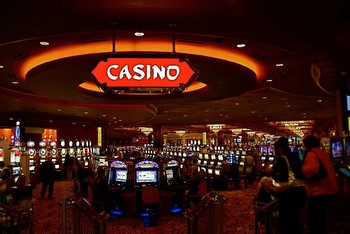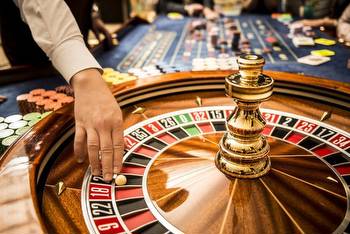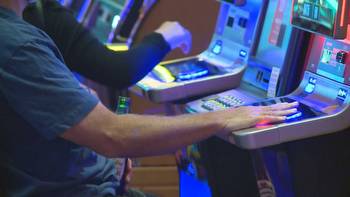Why is gambling historically popular among the Asian-American community in different states

All the above findings point out a similar conclusion that Asians in the United States gamble more than other ethnicities in the country.
Are Asians some of the most passionate gamblers in the world? According to a report by the Attorney General of California called ‘Gambling in the Golden State’ noted that the majority of recreational gamblers in the state were Asian Americans.
The report estimated that half of the clientele at one of the famous tribal casinos around Riverside, California were people of Asian origin. In his investigative report on Silicon Valley’s metro newspaper, Andrew Pham reported that Asians constitute 50 – 80% of customers at two local clubs where cards are played.
In a study conducted in Connecticut, half of the Asians interviewed acknowledged having gambled within the past fourteen days of the survey, with 42% having staked over $500 in the last two months.
A group of graduates from UC Berkeley, in collaboration with the Chinese Health Coalition, found that almost a third of the Chinese in San Francisco were pathological gamblers.
All the above findings point out a similar conclusion that Asians in the United States gamble more than other ethnicities in the country.
Gambling addiction is a significant problem in American research, indicating that about one percent of adult Americans battle compulsive gambling. There are no exact figures on the Asians affected by gambling addiction in the U.S., but all the research has documented gambling as a challenge in this community.
Why do Asian Americans gamble a lot
Several reasons explain why Asian Americans gamble more than other communities in different states.
Impact of culture on gambling
Gambling is accepted by Asians of all ages and is done at homes, social events, and gambling establishments. It is not uncommon to see Chinese youths gambling for money with older relatives such as uncles, aunts, and even grandparents.
The Asians carry their gambling culture from their homeland to the U.S. and play games of chance to socialize and make money.
Asians are firm believers in the mystical attributes of fate, luck, and chance in people’s lives. Chinese gamble during New Year celebrations to remove the bad luck of the ended year and usher good tidings of the new.
According to Paul Hoang, the Viet C.A.R.E founder, a non-profit organization that deals with mental health issues in the Vietnamese community, gambling activities among Asian-American people skyrocket during Lunar Year. It’s almost taboo for one not to participate.
Timothy Fong, co-director of the U.C.L.A. Gambling Studies Program, attributed gambling popularity among Asian Americans to the tradition of testing people’s luck through gambling.
Asian-American men in New York’s Chinatown used to gamble in basements. They later moved to casinos when Atlantic City emerged in the 1970s and Connecticut gambling premises in the late 1990s. This is according to Paul J. Q. Lee, a long-serving Chinatown community leader and former owner of a bus that used to ferry people to casinos.
Low living standards
Some Chinese, Koreans, Philippines, Cambodians, and Vietnamese immigrants move to America to seek better living. However, due to inadequate education and language barriers, most find it hard to get better-paying jobs.
The meager income and lack of adequate education gravitate most of them to casinos where they feel treated like honored guests. These people think they are living the ‘American Dream and end up wagering beyond their means. An Asian social worker in the Chinatown of San Francisco pointed out that most low-income immigrants from his community are blinded by the luxurious lifestyle exhibited by the casinos.
Denial and dependence
Privacy among the American-Asian community makes it hard to speak out and seek help when faced with gambling problems. Most are ashamed of it and choose to keep it to themselves rather than seek help.
Lee, a reformed gambling addict, attests that nothing mattered during his gambling days apart from gambling. Not even the family. The V.I.P. treatment, like free hotel suites, concert tickets, and managers; these goodies, were too good to resist. He would spend thousands of dollars at the casino to continue enjoying the treatment.
Lee said he did not admit he was in a gambling mess and saw it fit to gamble as long as the money was available.
Jimmy Wong, another gambling addict who overcame it, says that his brother kicked him out of his house in his early 20s. The brother couldn’t keep up with Wong’s gambling menace anymore, who could spend all his income from a supermarket job at the casinos.
“Despite having a job and an income, I was broke most of the time and affording food and transport was an issue. I ended up doing all sorts of jobs to finance my gambling activities,” said Wong. “I racked up two credit cards, and my brother had to pay them off. That’s when he had enough of it and told me to move out of the house,” he adds.
The importance of responsible gambling regulations
Gambling is not going to go away. There is no way anyone can stop people from gambling. Gambling has always existed and will always exist, perhaps in some cultures even more than others. However, this does not mean that gambling should be allowed to continue wreaking havoc on people’s lives. So, what’s the solution?
With many U.S. states legalizing online gambling and sports betting in recent years, with Maryland being the latest state to legalize sports betting, a strong emphasis is continuously being placed on establishing the right frameworks and processes to encourage, educate and ensure that responsible gambling is carried out at all times.
Through legislature, education, strict regulation and mandatory monitoring, not only will States have more control over minors’ participation in online gambling but will also reduce gamblers’ overall susceptibility to addiction. A regulated environment provides higher protection against problem gambling. Unlike offshore gambling sites, regulated sites are legally bound to direct people to get help. When necessary, also impose betting limits, exclude players or screen people for problem gambling. Not to mention that all gamblers are also be safeguarded against illegal betting practices that they might be susceptible to at offshore gambling sites, such as fraud.
Final thoughts
It’s no secret that problem gambling is a big issue in the Asian-American community, with empirical research confirming it. As more States continue to legalize and regulate online gambling, these sociocultural nuances must be also taken into consideration. Whilst creating safe regulating markets is a necessary step, state officials also need to provide the necessary help and support to minor communities who are more susceptible to problem gambling. Only by getting to the root of the problem, can we start changing the narrative and improving people’s lives.




































